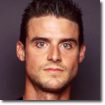
 By Cory Gregory
By Cory Gregory
June 7, 2010
In order to put myself through college, I worked as an underground coal miner in Ohio. Then as a 20-year-old fitness enthusiast and powerlifter, I opened my own gym. Now, years later, I’m an executive in a company that develops nutritional supplements-and I’m struck by how my somewhat nontraditional early experiences have helped me and my colleagues excel at our business and become one of the fastest-growing companies in our market space. Out of those experiences, I drew a number of lessons that have come to serve as personal and professional guidelines, even though I’m working in a different line of work.
Here’s one lesson I learned early on that’s proven valuable in my current position: Putting in those long hours really does pay off. When you’re down in a mine, you don’t get to knock off early, even when the physical labor is grueling-you stay with your team until the job is done. And when I was starting out as a powerlifter, the same principle came into play. You don’t get to win lifting competitions by limiting your practice time; the more often you work out, the better you get, period. Fast forward, and I’m still applying that lesson in my daily life. For the past two years, as president of my company, I’ve gotten out of bed at 4:15 a.m., and our CEO regularly works until 2 or 3 a.m. nightly. I’m convinced that our virtual “round-the-clock” work schedule has been a chief contributor to our success.
Second, make friends with the experts. You don’t know everything; find the people who do and pick their brains. As a powerlifter, I received valuable advice from a series of mentors. One of them, an accomplished bodybuilding coach, won the “Mr. Olympia” title three years in a row. Another was an internationally recognized sports physician with a list of patients that includes many elite athletes. Our CEO, a former pro football player, was mentored by one of the nation’s premier herbalists known for nutritional techniques and advanced herbal formulas.
Today, at our company, we’ve assembled a team of advisors that includes top nutrition experts, bodybuilders and a distinguished research scientist who spent a decade at the National Institutes of Health, and who is intimately familiar with the regulatory hurdles we need to navigate to get our products on store shelves. And as for that sports physician who helped me out years ago…he’s now one of our company’s advisors as well.
Finally, to connect with your customers, be a customer yourself. Both I and the CEO of my company know what consumers of nutritional supplements want, because we ourselves are consumers of those supplements. We know, for example, the value of having a product that is specifically designed to help with pre-workouts, since that’s an item we ourselves would (and do) use. Similarly, we know that customers want a separate post-workout formula, a fat loss formula, a nighttime recovery formula, etc., so in fact these are all part of our product line. This insight is not limited to any particular set of products or services. No matter what line of business you’re in, you’ll strengthen yourselves against the competition if you can put yourself in your customers’ shoes.
In short, to maximize the growth of your business, it’s vital to apply the insights you’ve gathered from the non-business parts of your life. You don’t have to have worked in a coal mine, or run a gym, for this to make sense. It’s always important to separate your work from your private life; but when the latter can help you grow the former…go for it!
Cory Gregory is president of MusclePharm Corporation, an Aurora, Colorado-based developer of nutritional supplements for athletes, bodybuilders, weightlifters and fitness enthusiasts. He can be reached at [email protected].








